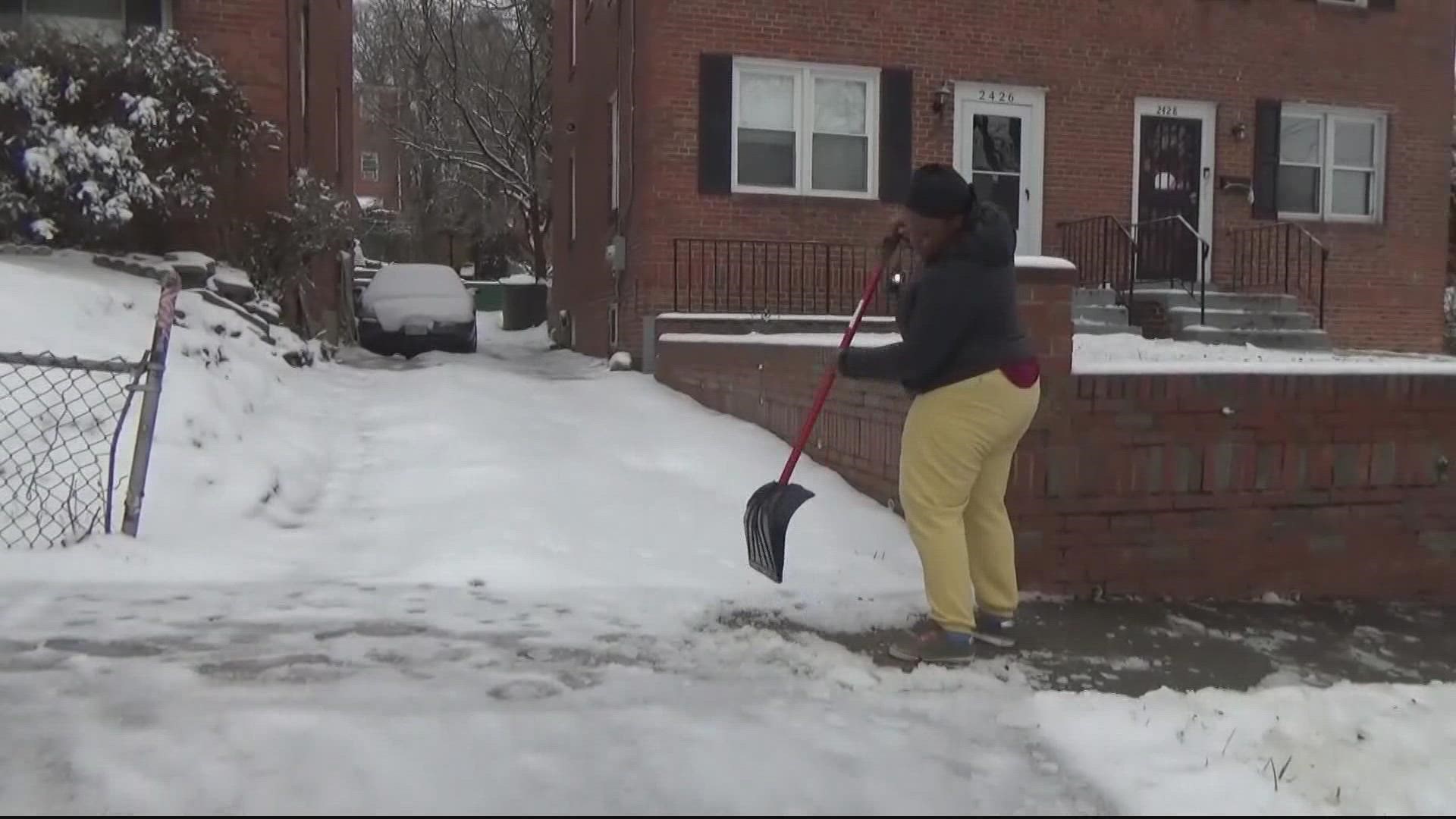WASHINGTON — Overnight rain Thursday turned to morning showers Friday, and WUSA9's Weather Team is forecasting temperatures plunging throughout the day from the 40s in the morning to teens at night.
That presents the perfect recipe for puddles to become slick spots.
It's well known that when icy conditions are on the way, it’s time to pop out the salt. But can it actually get too cold to work?
THE QUESTION:
Can it get too cold for salt to melt ice?
THE SOURCES:
- Chris Cramer- senior vice president at UL Research Institutes
- Karen Knee- associate professor and chair of the Department of Environmental Science at American University
THE ANSWER:
Yes, it can be too cold for salt to melt ice.
WHAT WE FOUND:
Water freezes at 32 degrees Fahrenheit; but adding salt plummets that freezing point down.
“When water turns from a liquid into a solid basically what it’s doing is forming a crystal structure, and the salt kind of interferes with the formation of that crystal structure," Knee said. "So it means that it has to get a lot colder before it will actually turn into ice.”
But salt can only drop that freezing point so far.
“It’s good down to about maybe 15 degrees Fahrenheit," Cramer said. "Below that, it’s not that you can’t possibly go lower than that, it’s just that it takes so much salt and so much time that it’s not terribly effective."
That’s 15 degrees for ground temps. Theoretically, Cramer says if you completely saturate the water with salt, you can get the freezing point to about -6 degrees Fahrenheit.
“You sorta have to grind the salt and the ice together and wait a long time, and you know that’s not practical when you’re outside on a driveway or something,” Cramer said.
In general, Knee says wait until it stops raining before laying down salt.
You don't want it to wash away. But don't wait until it gets too cold, you want that salt to penetrate the water.
“If it’s like completely frozen and dry, adding the salt won’t help that much, so like for example when you see trucks out on the road spreading salt, often times they’re using brine so it already comes with its own moisture.”

